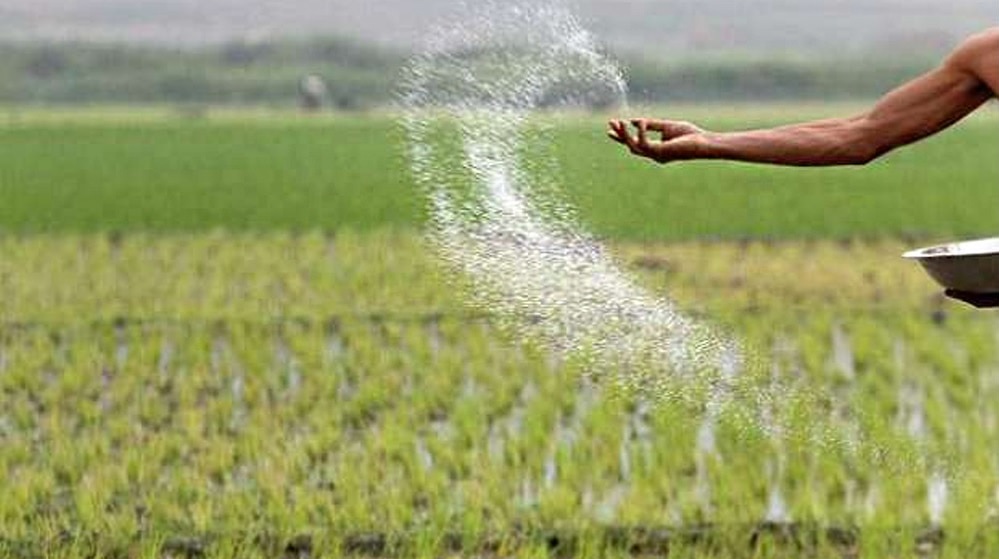Impact of Fertilizer Tax Increase on Farmers and Crop Costs
In the upcoming fiscal year 2025-2026 budget, the government is set to introduce a series of tax hikes aimed at generating substantial revenue. Among the most significant changes, the federal excise duty (FED) on fertilizers is likely to be doubled to 10 percent, and a new 5-10 percent duty is expected to be imposed on pesticides. These tax increases are part of the government’s strategy to raise an additional Rs. 50 billion, which will contribute to meeting the ambitious tax collection target of Rs. 14.3 trillion for the next fiscal year.
This tax overhaul aligns with Pakistan’s commitments under its current agreement with the International Monetary Fund (IMF). The IMF has emphasized the need for Pakistan to remove price interventions and raise taxes on agricultural inputs, particularly fertilizers and pesticides, to improve the nation’s fiscal health.
Tax Reforms and Agriculture: A Closer Look at the Impact on Farmers
Increased Taxes on Fertilizers and Pesticides
The decision to hike the federal excise duty on fertilizers is expected to significantly impact the agriculture sector. Fertilizers are a crucial input for farming, and the increase in their cost will likely put additional pressure on farmers, particularly smallholders, who rely on affordable agricultural products to sustain their crops.
Similarly, the imposition of a new 5-10 percent duty on pesticides will also add to the financial burden faced by farmers. Pesticides play a vital role in protecting crops from pests and diseases, and higher costs could affect crop yields and farmers’ profitability.
Agricultural Sector Facing Steep Income Tax Rates
In addition to the increased duties on fertilizers and pesticides, the agricultural sector will also face new income tax rates. Starting from July, farmers will be subject to income tax rates of up to 45 percent on income earned from January onward. This change is part of a broader plan to expand the tax base and increase revenue collection.
Although these measures are designed to boost revenue, they have sparked concerns among farmers and agricultural groups, who argue that the added financial strain may further hinder growth in the sector. Critics of the policy suggest that these taxes may discourage investment in agriculture and lead to a rise in the cost of food production, potentially affecting food security.
Also Read:
IMF Urges Pakistan to Impose 45% Tax on Agricultural Income
Pakistan’s IMF Agreement: Key Tax Changes to Meet Revenue Target
The government’s decision to increase taxes on fertilizers, pesticides, and agricultural income comes as part of Pakistan’s ongoing efforts to meet its revenue targets under the IMF program. The IMF has been pushing for higher taxes on agricultural inputs and a reduction in price interventions as part of its broader financial stabilization program.
The new tax measures will help Pakistan reach the ambitious Rs. 14.3 trillion revenue target for FY26. This target represents a 16 percent increase over the revised revenue goal set for the current fiscal year. As part of its agreement with the IMF, the government has committed to implementing these tax hikes, despite opposition from some political parties.
Super Tax Review: Potential Reduction for High-Income Individuals
The government is also considering a reduction in the super tax rate, which currently stands at 10 percent. The potential reduction to 8 percent will only proceed if alternative revenue sources are secured. The super tax, which targets high-income individuals and corporations, has been a controversial measure, with critics arguing that it discourages investment and economic growth.
If the super tax rate is indeed reduced, it could offer some relief to high-income earners and corporations, but the government will need to secure alternative revenue streams to offset the lost income. This is a delicate balancing act, as the government seeks to maintain fiscal stability while also satisfying the IMF’s demands for higher taxes.
Impact on Special Economic Zones (SEZs)
Another significant tax change in the upcoming budget involves the tax-free status of Special Economic Zones (SEZs). Currently, businesses operating in SEZs benefit from tax exemptions, which have been a key incentive for attracting foreign investment. However, the government is considering reducing the tax-free status of SEZs from 10 years to 9 years, effective from July. This change may discourage new investments in SEZs, as businesses may seek more favorable tax conditions elsewhere.
Furthermore, no new tax incentives will be granted or renewed for SEZs, signaling a shift in the government’s approach to encouraging foreign investment. The reduction in SEZ tax incentives is part of a broader strategy to streamline tax policies and increase revenue without relying too heavily on exemptions and incentives.
IMF Talks and Finalizing Tax Measures
As Pakistan prepares for the FY26 budget, the government will begin negotiations with the IMF on May 14 to finalize the tax measures required to meet the Rs. 14.3 trillion revenue target. These talks will be crucial in determining the final structure of tax reforms and ensuring that Pakistan remains on track with its IMF program.
The IMF has been closely monitoring Pakistan’s tax collection efforts and has emphasized the need for more aggressive reforms to enhance fiscal sustainability. The government’s ability to implement these tax measures successfully will be key to securing continued IMF support and ensuring the stability of Pakistan’s economy.
The Future of Pakistan’s Tax Reforms and Agricultural Sector
The government’s proposed tax hikes and reforms are a bold attempt to address Pakistan’s fiscal challenges and meet its revenue targets. While the increased taxes on fertilizers, pesticides, and agricultural income will generate much-needed revenue, they also carry risks for the agriculture sector, which is already grappling with various economic pressures.
The government’s ability to balance the needs of the agricultural sector with the demands of the IMF will be crucial in determining the success of these tax reforms. As negotiations with the IMF continue, it remains to be seen whether these measures will help stabilize Pakistan’s economy or exacerbate existing challenges for farmers and businesses.


